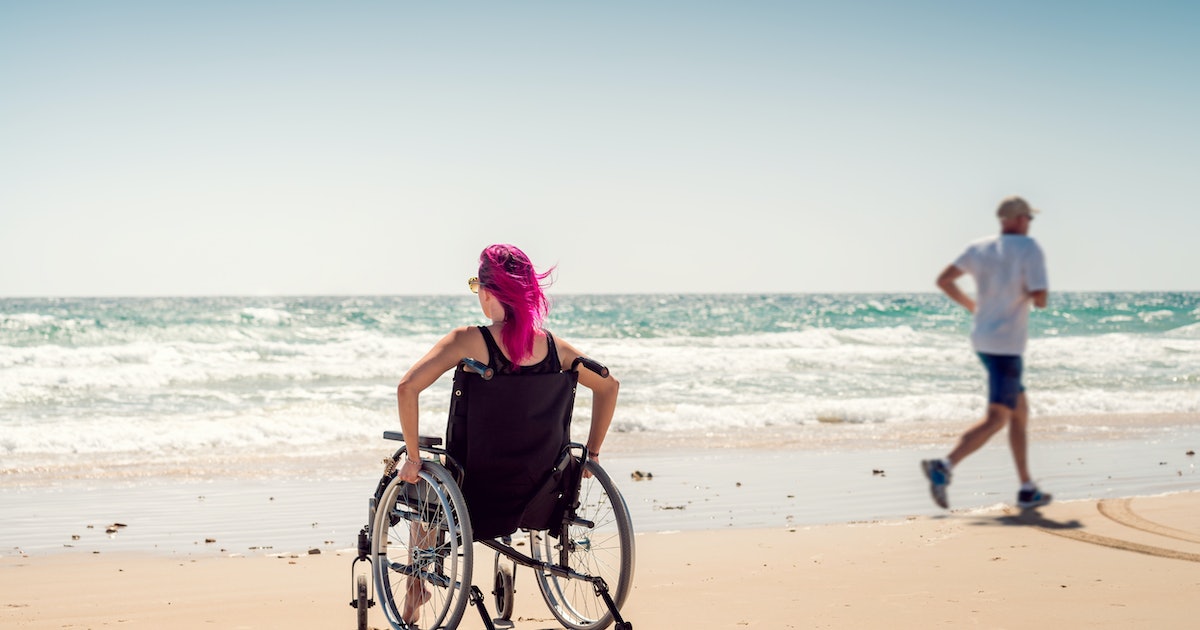Immovability can be a curse for a normal livelihood. However, with remarkable technological advancement in the medical field, people with disabilities can also choose the life they desire. Elderly and physically impaired people often face challenges to move freely and do daily chores on their own. Sometimes, this inability affects their mental health, causing depression and other ailments that may worsen their condition. Thus, it is of utmost importance for caregivers and family members to take extra care of them. They can regain the confidence and self-dependence to lead an everyday life with optimum love, care, and support. One such expression of care is planning a vacation with your loved ones.
If you are planning a trip with a disabled person, here are a few tips to make the trip memorable and safe.
Book in advance: Avoid the last-minute rush and plan a few months ahead of the trip. Last-minute bookings and reservations might prove to be bad choices. For a fellow traveler with a disability, these uncertainties, delays, or hassles can cause further difficulties. Also, review the list of destinations and finalize the one best suited for the disability condition. When booking accommodations, especially in foreign countries that may not have ADA-like laws, it’s essential to ask the hotel specific questions about their disability accommodations. Inquire about the availability of accessible rooms, the width of doorways and hallways, grab bars in bathrooms, and whether they have ramps or elevators to reach different floors. Additionally, ask about their willingness to accommodate specific needs or provide additional assistance if required, ensuring a comfortable and stress-free stay.
Avoid harsh weather conditions: Choosing locations with a pleasant climate is best. Extreme weather conditions can only put you in more trouble, barring you from traveling freely. If you choose a tropical destination, avoid summer and monsoon months. For colder destinations, avoid the winter months. This will make the trip more enjoyable and help avoid lousy weather consequences that might affect you as a tourist.
Exclude inaccessible locations: It is a strict no-no when choosing inaccessible locations, just for the sake of adventure. You may add it to your wish list and try visiting later. Choosing from touristy locations with the best accommodation, food, transport facilities, and basic amenities like internet, healthcare services, and more is best. Additionally, conducting thorough research before embarking on your journey is essential. Look for destination reviews and forums specifically catered to travelers with disabilities to gain insights into the accessibility and mobility-friendliness of the place you plan to visit. Engaging with fellow travelers with similar needs can provide valuable firsthand experiences and recommendations. Finally, consider consulting with travel agencies or experts specializing in accessible tourism to ensure your trip is well-planned and accommodates your specific requirements.
Medical emergency kit: Every traveler must carry the first-aid kit in their backpacks. Don’t forget to take prescription medicines, SOS pills, and any other medical items or devices that might be required during the trip. Don’t forget to carry along the medical documents and prescriptions to avoid any hassles during airport security checks.
Movability-friendly devices: Invest in a disability friendly device that will make your and your co-traveler’s lives easier. Some of the advanced versions of wheelchairs run on rechargeable batteries and are portable. They can travel long distances with a single charge. Once you reach your destination or board a flight, fold and carry it with your luggage. They are lightweight, sturdy, and the most convenient options for travelers.
Travel light: Ensure you don’t pack unnecessary items, clothing, or accessories that you can easily skip or purchase at the destination. Travel light, avoid additional airfares, and move freely. This is also useful when you face an emergency and must pack and move out fast. Carrying a backpack is much more convenient than pulling trolleys and suitcases. Go hands-free.
Community help: Some due diligence about the destination might yield favorable results. You might find many social groups and communities online that might help you with the best recommendations. Also, if you face an adverse situation, the community can help you by providing necessary information about emergency contacts. Many communities for the disabled and elderly might offer valuable tips and ideas for safe and hassle-free travel.
Conclusion
Thus, in a nutshell, it might not be challenging to travel with a disability, but it needs some sensible planning beforehand. A detailed study before the travel is required so you can visit the best tourist attractions that might not be hard to access. Also, you can skip a few places if they aren’t easily accessible. Always seek medical advice before travel to ensure the traveler is in his best health. It is essential to seek valuable advice from the medical practitioner to deal with emergencies. The accessibility-friendly devices are smart choices that make your travel easy. So, invest in an excellent assistive device, beat the odds, and make your trip memorable.

